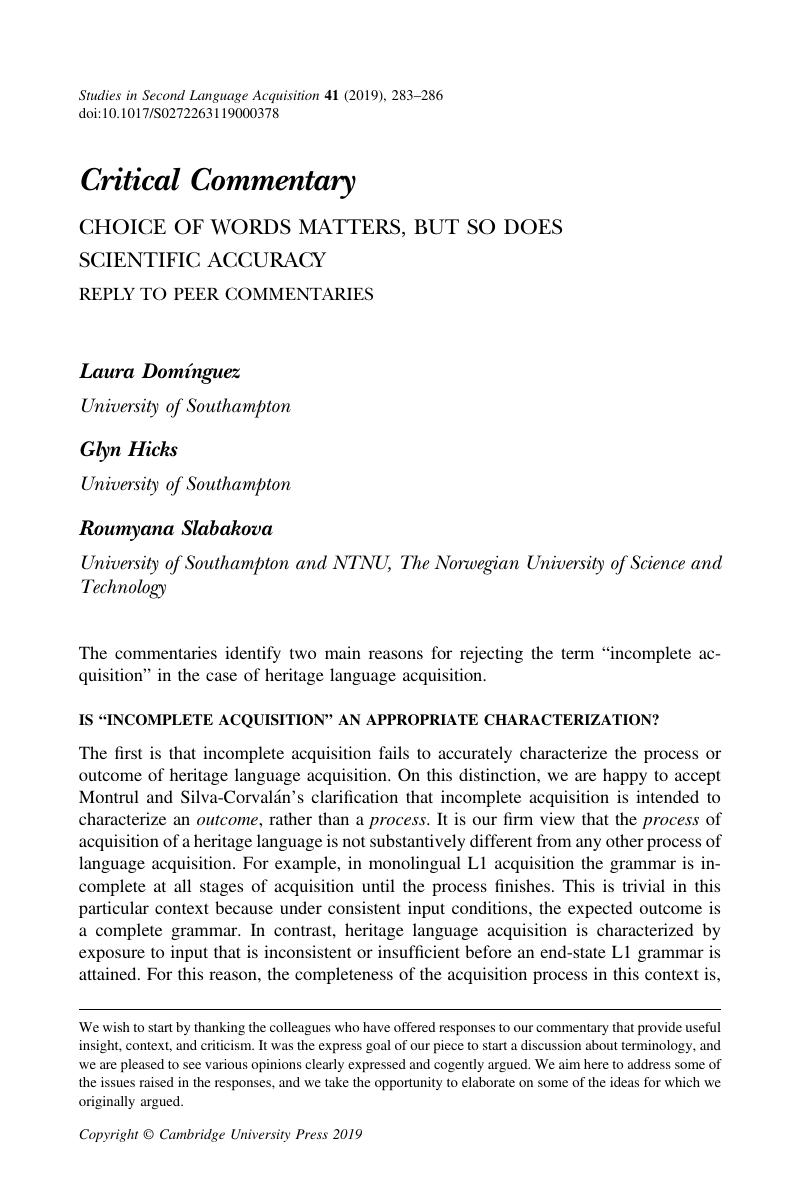REPLY TO PEER COMMENTARIES
Published online by Cambridge University Press: 04 July 2019

We wish to start by thanking the colleagues who have offered responses to our commentary that provide useful insight, context, and criticism. It was the express goal of our piece to start a discussion about terminology, and we are pleased to see various opinions clearly expressed and cogently argued. We aim here to address some of the issues raised in the responses, and we take the opportunity to elaborate on some of the ideas for which we originally argued.